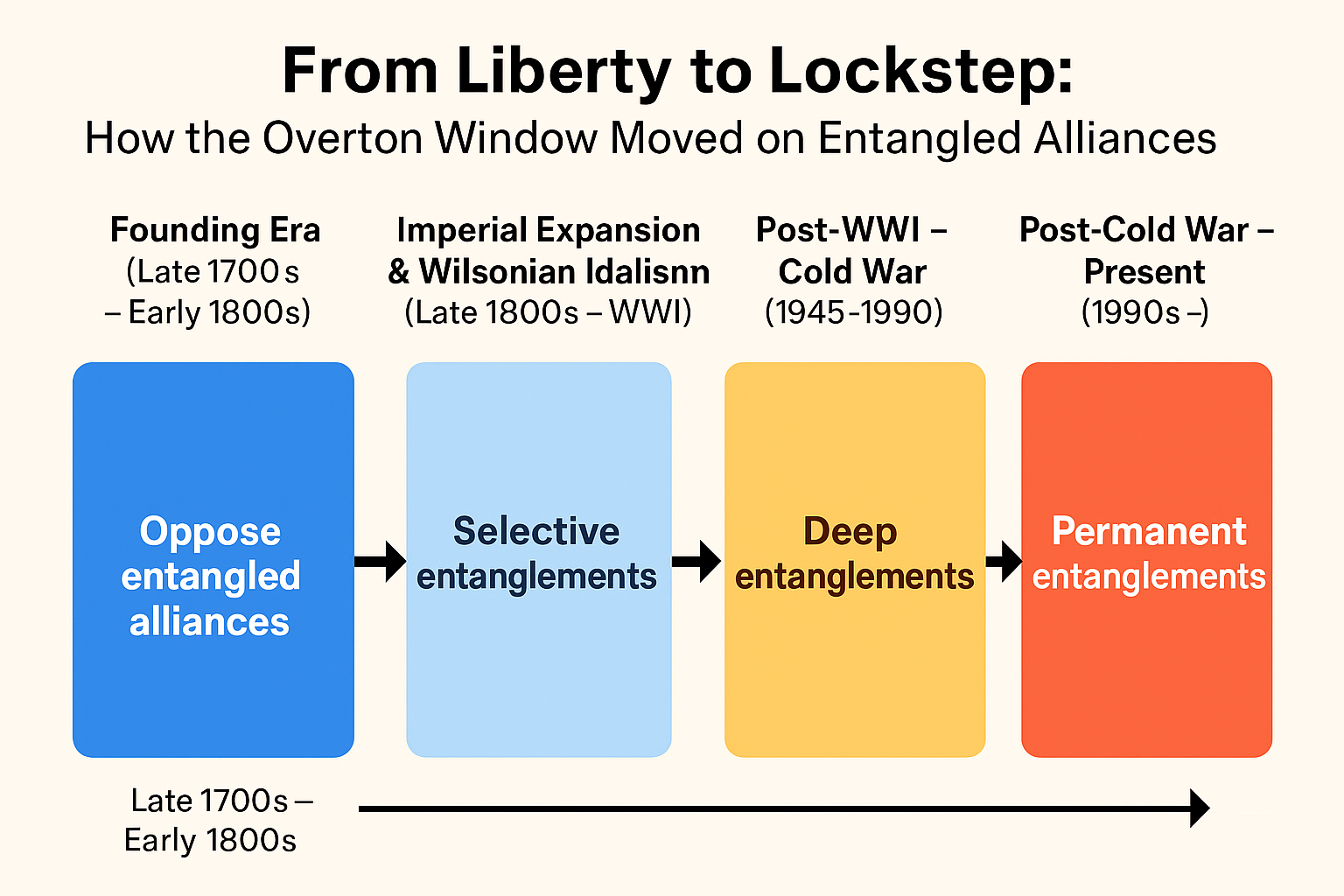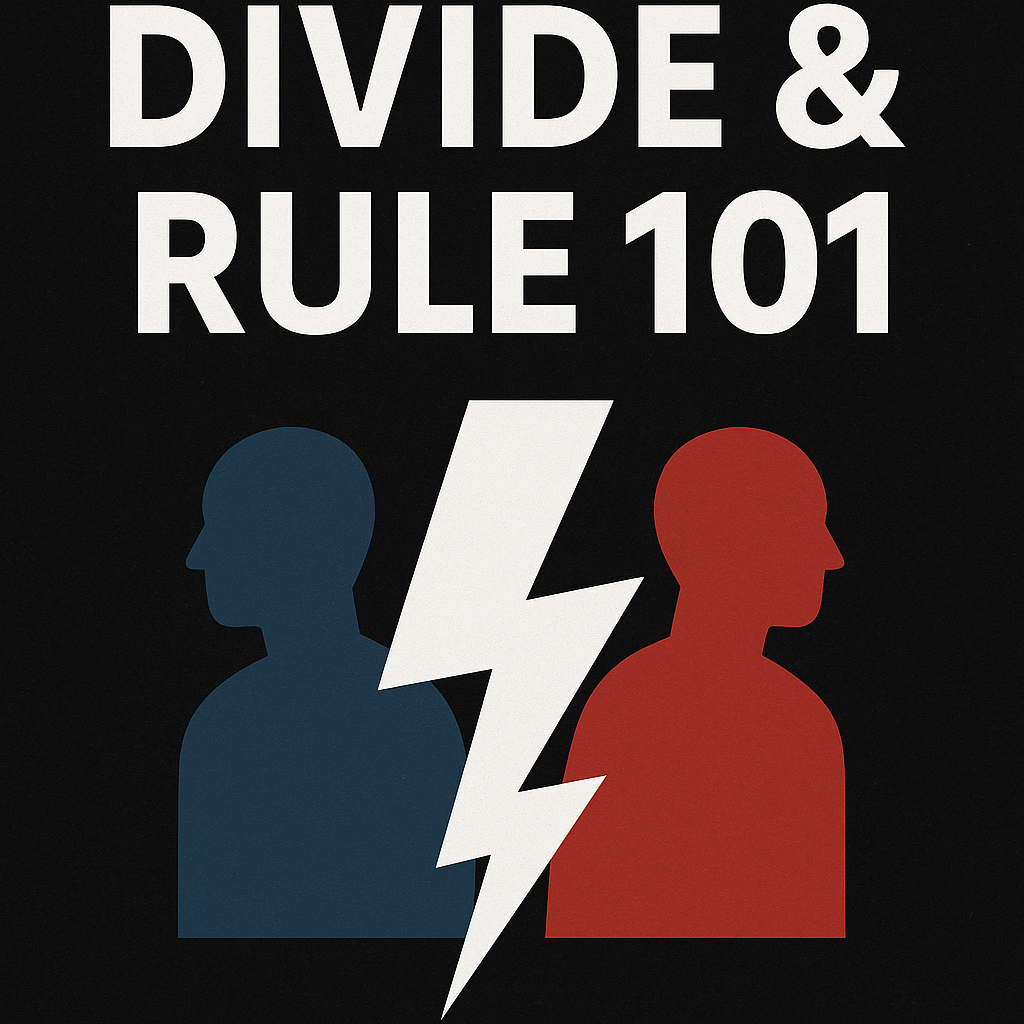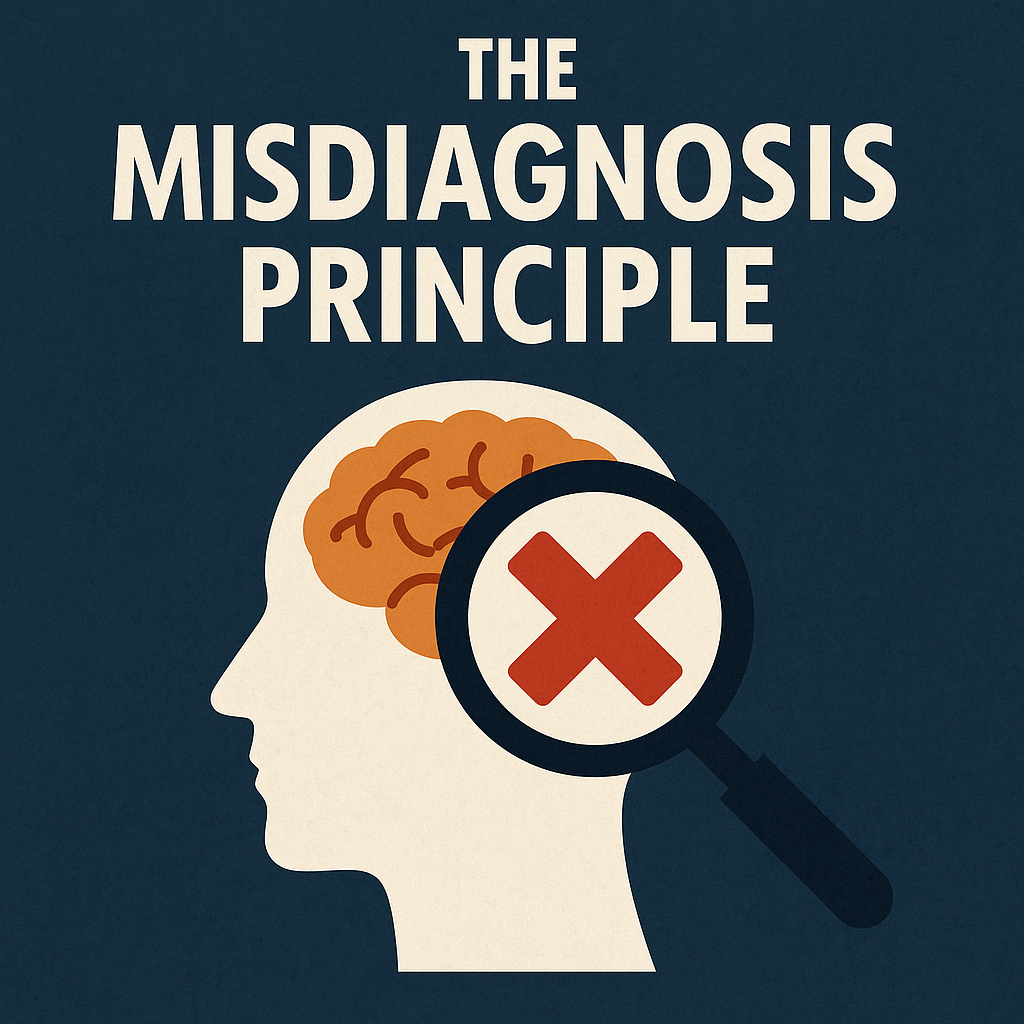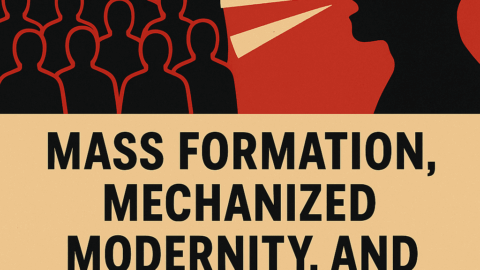The Overton Window—the range of policies politically acceptable to the mainstream at any given time—has shifted dramatically over time regarding entangled alliances in America. Originally, U.S. political orthodoxy was rooted in strict non-entanglement, inspired by George Washington’s Farewell Address. But over the centuries, especially in the 20th and 21st centuries, the window has moved so far that deep, permanent entanglements are now considered not only acceptable, but essential. Below is a breakdown of that shift:
Founding Era (Late 1700s – Early 1800s):
Overton Window Position:
Normative consensus: Oppose entangled alliances.
What was acceptable:
- Neutrality and independence in foreign affairs
- Avoiding foreign military alliances
- Emphasis on commerce over political alignment
Key Thinkers:
- George Washington: “It is our true policy to steer clear of permanent alliances with any portion of the foreign world.”
- Thomas Jefferson: “Peace, commerce, and honest friendship with all nations—entangling alliances with none.”
Imperial Expansion & Wilsonian Idealism (Late 1800s – WWI):
Overton Window Position:
Expanding toward selective entanglements in the name of moral progress or imperial benefit.
What became acceptable:
- Strategic interventions (Spanish-American War, Philippines)
- The idea of spreading democracy (Wilson’s 14 Points)
- Participation in international organizations like the League of Nations (though ultimately rejected)
Shift Marker:
- The U.S. begins to justify intervention through moral universalism rather than just self-defense.
Post-WWII – Cold War (1945–1990):
Overton Window Position:
Deep, permanent entanglements become normalized—especially under the pretext of anti-communism.
What became acceptable:
- NATO (permanent military alliance)
- U.S. bases in dozens of countries
- Global military presence
- “Police power” in Korea, Vietnam, Latin America, etc.
Shift Justification:
- Containment of communism made entanglement seem not only acceptable but morally necessary.
Post-Cold War – 9/11 Era (1990s–2010s):
Overton Window Position:
Entanglement becomes the default. Global policing, regime change, and alliances with dubious regimes are normalized.
What became acceptable:
- Permanent wars (Iraq, Afghanistan)
- Military aid to authoritarian allies (e.g., Saudi Arabia, Egypt, Israel)
- Global surveillance and drone programs
- Unquestioned support for Israel as a bipartisan orthodoxy
Shift Mechanism:
- War on Terror reframed entanglements as a duty of defense and freedom.
2020s – Present:
Overton Window Position:
Questioning entanglements is re-entering the conversation—but still considered fringe or “extremist” by many.
What is currently acceptable:
- Endless funding of NATO and Ukraine
- Permanent support for Israel regardless of behavior
- Military-industrial complex dominance of foreign policy
What is still outside the window (but slowly pressing in):
- Ending foreign aid to allies involved in human rights violations
- Reasserting non-interventionist foreign policy
- Withdrawing from global policing role
- Reexamining U.S.-Israel alliance from a constitutional/biblical lens
Drivers of the shift:
- Financial collapse concerns
- Political populism (right and left)
- Weariness of endless wars
- Growing awareness of the military-industrial complex (Eisenhower’s warning)
Summary: How the Overton Window Has Moved
| Era | Entanglement Status | Public Frame |
|---|---|---|
| Founding (1776–1830s) | Rejected | Dangerous to liberty |
| 1900s–WWI | Cautiously considered | Idealistic duty |
| WWII–Cold War | Embraced | Anti-communist necessity |
| 1990s–2010s | Institutionalized | War on Terror, spread freedom |
| 2020s | Slightly challenged | Financial burden, moral duplicity |
What Can Be Done:
To restore the original intent, Americans must:
- Reeducate themselves about the Founders’ wisdom on foreign policy.
- Push the Overton Window through discourse, media, and elected leaders.
- Audit entanglements through a biblical, constitutional, and economic lens.
- Reject permanent alliances and demand case-by-case congressional decisions.
- Speak truth about the military-industrial complex and its profiteering from global chaos.







